Since its inception in 2016, the Educational Arm has developed instructional materials to accompany select pieces from the nonfiction, fiction, poetry, drama, and visual sections of each issue of Asymptote. Now with twenty Educator’s Guides in our archive, and over one hundred lesson plans based on translations from over fifty different languages, teachers can truly experience the world with their students. We encourage educators to explore the myriad of ways Asymptote content can be adapted and used in their curriculums; most lessons can be readily applied in literature courses at the high school or university level, but are also flexible enough to be adapted for a variety of humanities classes such as English, creative writing, cultural studies, and modern languages. They can also be easily applied to engage lifelong learners at community centers or arts organizations.
The Summer 2021 Educator’s Guide features lesson plans based on a diverse array of texts from the latest issue of Asymptote, including nonfiction translated from Czech and Spanish, poetry from Brazil and Iceland, and visual art inspired by China and the U.S. In these lessons, students are invited to observe urban life through the lens of psychogeography; explore the multifaceted relationship between art, memory, and cultural identity; research poets and critically examine the concept of literary canon; and delve into the translation process while reflecting on their own experiences reading works in translation. We hope that the Educator’s Guide will serve as a springboard for the use of world literature in your own classroom.
In this following roundtable, four members of the Educational Arm—representing a variety of teaching contexts—sit down for a discussion about the Educator’s Guide. Anna Rumsby (English language teaching, U.K./Germany), Mary Hillis (English language teaching, Japan), Kent Kosack (creative writing, U.S.), and Kasia Bartoszynska (literature, U.S.) discuss their favorite lessons from previous Educator’s Guides—why they chose the pieces in question, how they adapted them, with additional discourse on teaching through the pandemic and the importance of reading world literature.
Mary Hillis (MH): How does translated literature fit into your teaching practice? Have you taught any lessons from the Educator’s Guide, or do you have any favorite lessons from previous guides?
Anna Rumsby (AR): I teach English to German speakers; most of my lessons revolve around the German school system, and therefore involve rather more pedestrian areas such as grammar and traditional style essays. As a relatively new addition to the Education Arm, I was deeply impressed and invigorated by the creative freedoms we enjoy in producing the incredibly unique material at hand, working from some incredibly talented authors and translators. It definitely highlighted what had sometimes been lacking for me in my other work. I suppose that, in a way, working on the Educator’s Guide means I can design lessons which I would love to teach, rather than those I teach day to day.
In the Fall 2020 Educator’s Guide, I was particularly struck by the lesson plan called “Writing About What is Lost,” on “Living Trees and Dying Trees” by Itō Hiromi, translated by Jon L. Pitt. I am a great lover of both folklore and the botanical world; my MA dissertation involves a lot of Black Forest folklore, and my partner is a gardener, so the exercise on the importance and meaning of trees in Japanese culture really struck me. It reminded me of strolling through botanical gardens in the pre-COVID age, being told the Latin names and significance of all the trees I pointed at. I love how the lesson plan uses Itō Hiromi’s work as a springboard for further research, which in turn explores specific topics in more depth.
Kent Kosack (KK): I’m glad you mentioned “Writing about What is Lost.” It’s a great example of what teaching world literature and literary translation can do—letting the students explore a different place, a culture or sensibility, and using it to learn more about the wider world. By the end of the lesson, they’re making connections to their own lives and—in this case—reflecting on what’s been lost. It’s difficult work, but especially during this pandemic, necessary and potentially cathartic. READ MORE…


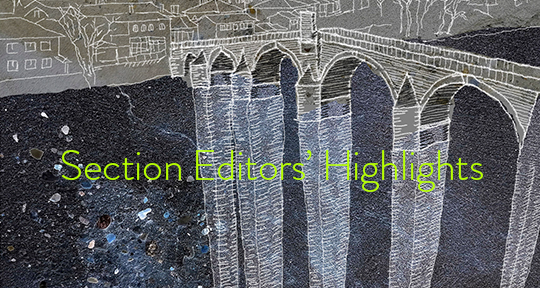
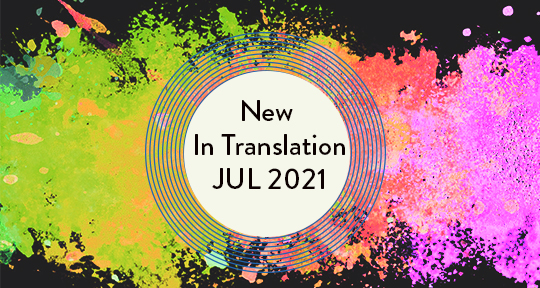
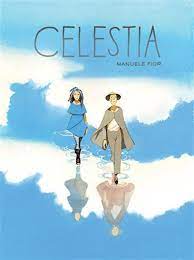

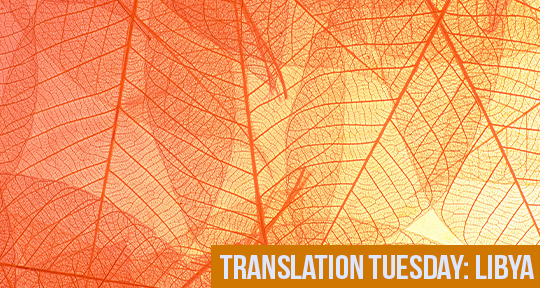
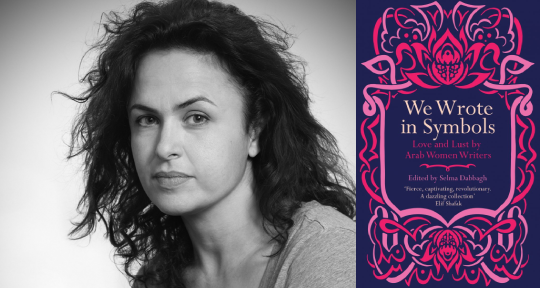
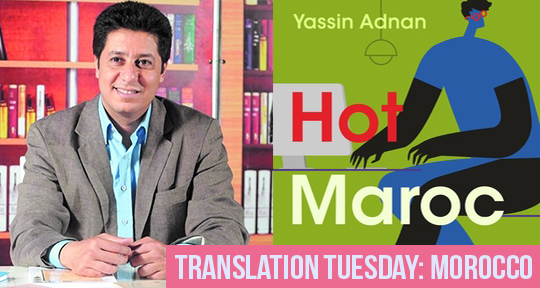
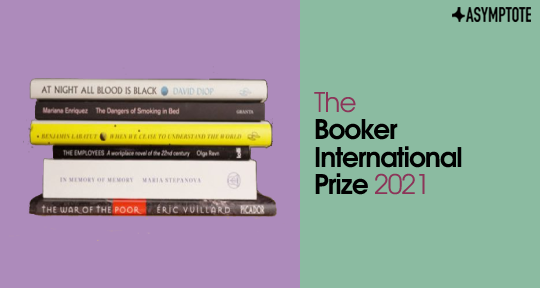
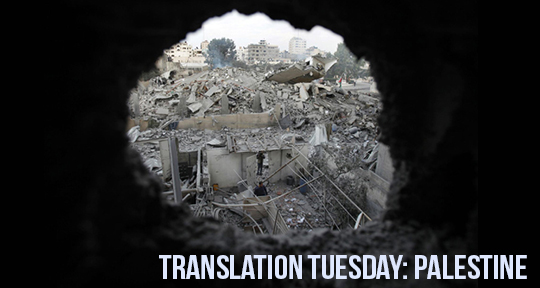


Radical Reading: Sara Salem Interviewed by MK Harb
I’ve increasingly thought more about what generous, kind, and vulnerable reading might look like instead.
At the height of the pandemic, I—like so many of us—looked for new sources of intrigue and intellectual pleasure. This manifested in finding Sara Salem’s research and reading practice, Radical Reading, which was a discovery of sheer joy; Salem views books and authors as companions, each with their own offerings of certain wisdom or radical thought. When she shares these authors, she carries a genuine enthusiasm that they might come with some revelation.
I interviewed Salem as she sat in her cozy apartment in London wrapping up a semester of teaching at the London School of Economics. We discussed our lockdown anxieties and our experiences with gloomy weather until we arrived at the perennial topic: the art of reading. The interview continued through a series of emails and transformed into a beautiful constellation of authors, novelists, and activists. In what follows, Salem walks us through the many acts of reading—from discussing Angela Davis in Egypt to radicalizing publications in her own work, in addition to recommending her own selections of radical literature from the Arab world.
MK Harb (MKH): Reading is political, pleasurable, and daring. Inevitably, reading is engaged in meaning-making. How did you arrive at Radical Reading as a practice?
Sara Salem (SS): Some of my most vivid childhood memories are of spending long afternoons at home reading novels, and when I think back to those novels, I find it striking that so many of them were English literature classics. I especially remember spending so much time reading about the English countryside—to the extent that today, when I am there, or passing it on a train, I get the uncanny feeling that it’s a place I know intimately. Later, when I read Edward Said’s writing on Jane Austen and English literature more broadly—its elision, erasure, and at times open support of empire—it struck me that we can often read in ways that are completely disconnected from the lives we live. This tension was what first opened up entire new areas of reading that completely changed my life, among which was the history of empire across Africa; at the time I was living in Zambia, where I grew up, and often visited Egypt. Critical history books were probably my first introduction to what you call the practice of radical reading, of unsettling everything you know and have been taught in ways that begin to build an entirely different world.
I like that you say reading is engaged in meaning-making, because it has always been the primary way in which I try to make sense of something. Even more recently, as I’ve struggled with anxiety, reading above all became my way of grappling with what I was experiencing: what was the history of anxiety, how have different people understood it, and how have people lived with it? I realise, of course, that not everything can be learned from a book, but so far, I’ve found that what reading does provide is a window into the lives of people who might be experiencing something you are, making you feel less alone.
MKH: How do you reconcile reading for pleasure versus reading for academic and political insights? Do they intersect? Being idle has its own spatial practice of radicality at times, and I’m curious on how you navigate those constellations.
SS: This question really made me think! In my own life, I have always made the distinction of fiction as pleasure and non-fiction as academic/work-related. So, if I need to relax, or want to take some time off, I will instinctively reach for fiction, and if I want to start a new project, I think of which academic texts would be helpful. However, this began to change about five or six years ago, when I began to think more carefully about how fiction speaks to academic writing and research, as well as how non-fiction—unrelated to my own work—can be a great source of pleasure and relaxation. This has meant that they have begun to intersect much more, and it has enriched both my academic work and my leisure time. READ MORE…
Contributor:- MK Harb
; Language: - Arabic
; Places: - Egypt
, - Zambia
; Writers: - Ahdaf Soueif
, - Arwa Salih
, - Huda Tayob
, - Mahmoud Darwish
, - Sonallah Ibrahim
, - Thandi Loewenson
, - Waguih Ghali
; Tags: - intersectional feminism
, - migration
, - Race
, - radicalism
, - Reading
, - sexuality
, - social commentary